detail profile marcel pagnol
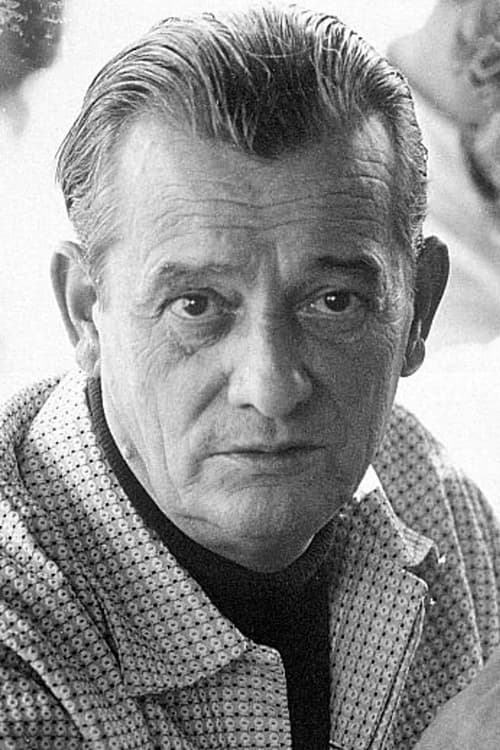
Marcel Pagnol
Marcel Pagnol
atau dikenal sebagai
Riwayat Hidup
Marcel Paul Pagnol (28 February 1895 – 18 April 1974) was a French novelist, playwright, and filmmaker.
Regarded as an auteur, in 1946, he became the first filmmaker elected to the Académie française.
Although his work is less fashionable than it once was, Pagnol is still generally regarded as one of France's greatest 20th-century writers and is notable for the fact that he excelled in almost every medium—memoir, novel, drama and film.
Pagnol was born on 28 February 1895 in Aubagne, Bouches-du-Rhône department, in southern France near Marseille, the eldest son of schoolteacher Joseph PagnolA and seamstress Augustine Lansot.
Marcel Pagnol grew up in Marseille with his younger brothers Paul and René, and younger sister Germaine.
In July 1904, the family rented the Bastide Neuve, – a house in the sleepy Provençal village of La Treille – for the summer holidays, the first of many spent in the hilly countryside between Aubagne and Marseille.
About the same time, Augustine's health, which had never been robust, began to noticeably decline and on 16 June 1910 she succumbed to a chest infection ("mal de poitrine") and died, aged 36.
Joseph remarried in 1912.
In 1913, at the age of 18, Marcel passed his baccalaureate in philosophy and started studying literature at the University in Aix-en-Provence.
When World War I broke out, he was called up into the infantry at Nice but in January 1915 he was discharged because of his poor constitution ("faiblesse de constitution").
On 2 March 1916, he married Simone Colin in Marseille and in November graduated in English.
He became an English teacher, teaching in various local colleges and at a lycée in Marseille.
In 1922, he moved to Paris, where he taught English until 1927, when he decided instead to devote his life to playwriting.
During this time, he belonged to a group of young writers, in collaboration with one of whom, Paul Nivoix, he wrote the play, Merchants of Glory, which was produced in 1924.
This was followed, in 1928, by Topaze, a satire based on ambition.
Exiled in Paris, he returned nostalgically to his Provençal roots, taking this as his setting for his play Marius, which later became the first of his works to be adapted into a film in 1931.
Separated from Simone Collin since 1926 (though not divorced until 1941), he formed a relationship with the young English dancer Kitty Murphy.
Their son Jacques Pagnol was born on 24 September 1930.
(Jacques later became his father's assistant and subsequently a cameraman for France 3 Marseille.
)
In 1929, on a visit to London, Pagnol attended a screening of one of the first talking films and he was so impressed that he decided to devote his efforts to cinema.
He contacted Paramount Picture studios and suggested adapting his play Marius for cinema.
This was directed by Alexander Korda and released on 10 October 1931.
It became one of the first successful French-language talking films.
.
.
.
Source: Article "Marcel Pagnol" from Wikipedia in English, licensed under CC-BY-SA 3.
0.
Info Pribadi
Peran Yang Di Mainkan Marcel Pagnol
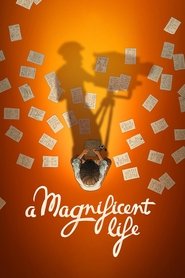 A modern fable the animated biopic...
A modern fable the animated biopic...The Magnificent Life of Marcel Pagnol 2025
A modern fable, the animated biopic will chart the epic life of Pagnol, a celebrated French novelist, playwright and filmmaker who grew up in a middle-class household in Marseille and became one of the world’s most inventive and prolific artists from the 1930’s to the 1950’s. Throughout his long career, Pagnol’s books were translated into more than 50 languages and sold more than 150 million units. Pagnol also built his own studio and distribution company, pioneering talking pictures and helping shape the global cinema industry at the time. His movies, including his best-known Provence-set melodrama trilogy “Marius,” “Fanny” and “César,” reached more than 200 admissions worldwide.
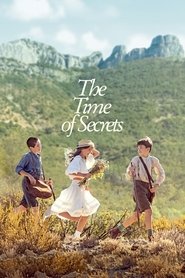 Marseille July 1905 Nearly a teenager Marcel...
Marseille July 1905 Nearly a teenager Marcel...The Time of Secrets 2022
Marseille, July 1905. Nearly a teenager, Marcel Pagnol embarks in his last summer vacation before high school and returns, at last, to his beloved hills in Provence. What begins as a summer of boyhood adventures becomes one of the first loves, and unearthed secrets.
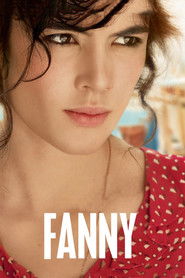 Fanny is the second part of...
Fanny is the second part of...Fanny 2013
"Fanny" is the second part of the "Marseille trilogy", made by Marcel Pagnol with the generic name of "Marius, Fanny and César". Fanny falls in love and is abandoned by Marius. Now she discovers she is pregnant. Her mother and Marius's father, César, persuade her to accept the romantic advances of a much older man. To save face, Fanny accepts to marry Honoré Panisse, a rich merchant of the Vieux Port, 30 years her senior who will recognize her son.
 Marius takes place in Marseilles Old...
Marius takes place in Marseilles Old...Marius 2013
"Marius" takes place in Marseilles' Old Port, at the La Marine Bar, owned by César and his son Marius. Marius' biggest dream is to embark on one of the boats passing by his dad's bar and to set off to a faraway land. Fanny, a young and pretty seafood peddler, has secretly been in love with Marius since her childhood; Marius, never admitting it, has always loved Fanny. One day, a sailor drops by La Marine and offers him a job on an exploratory ship. Trying to hold him off and to make him jealous, Fanny confesses his love to him and provokes a fight between Marius and one of César's old friends, Panisse, a boat merchant, who despite his old age, has been courting Fanny for a while. Torn between the call of the sea and his love for her, Marius abandons his dream to be with Fanny who gives herself to him. As César and Honorine, Fanny's mother, are getting ready for the wedding, Marius changes his mind, drawn back to the call of the sea.
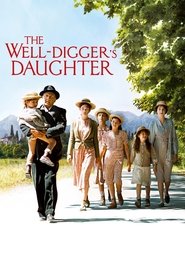 Its the beginning of the WWII...
Its the beginning of the WWII...The Well Digger's Daughter 2011
It's the beginning of the WWII. South of France. Patricia, 18, is the oldest daughter of a well-digger, Pascal, who considers her a princess because of her moral qualities. She's kind, devoted. One day, she briefly meets a young man, Jacques, the son of Mazel, owner of the shop where her father buy his material. He's handsome and teasing. Her father's friend, Felipe, would love to marry her, and he invites her to an aviation show. She accepts his invitation only because she knows Jacques is a pilot and will be there. Soon, she'll carry his child, and he'll be gone, and the family will have to deal with this out-of-wedlock pregnancy...
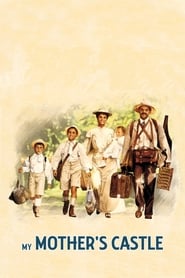 To his chagrin young Marcel Pagnol...
To his chagrin young Marcel Pagnol...My Mother's Castle 1990
To his chagrin, young Marcel Pagnol and his family move back to their home in Marseilles, France, far from their pastoral holiday cottage in the hills. Determined, Marcel makes the long voyage back to the cottage on foot and lands himself in trouble. One day Marcel's father discovers a shortcut to the cottage, but it requires trespassing. Despite their trepidations, Marcel and his family begin using the secret trail to reach their cottage.
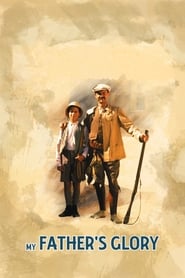 Raised by his science teacher father...
Raised by his science teacher father...My Father's Glory 1990
Raised by his science teacher father, Joseph Pagnol, and seamstress mother Augustine, young Marcel grows up during the turn of the century in awe of his rationalist dad. When the family takes a summer vacation in the countryside, Marcel becomes friends with Lili, who teaches him about rural life.
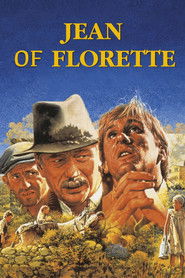 In a rural French village an...
In a rural French village an...Jean de Florette 1986
In a rural French village, an old man and his only remaining relative cast their covetous eyes on an adjoining vacant property. They need its spring water for growing their flowers, and are dismayed to hear that the man who has inherited it is moving in. They block up the spring and watch as their new neighbour tries to keep his crops watered from wells far afield through the hot summer. Though they see his desperate efforts are breaking his health and his wife and daughter's hearts, they think only of getting the water.
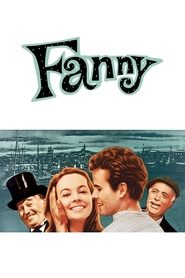 Almost 19yearold Marius feels himself in...
Almost 19yearold Marius feels himself in...Fanny 1961
Almost 19-year-old Marius feels himself in a rut in Marseille, his life planned for him by his cafe'-owning father, and he longs for the sea. The night before he is to leave on a 5-year voyage, Fanny, a girl he grew up with, reveals that she is in love with him, and he discovers that he is in love with her. He must choose between an exciting life at sea, and a boring life with the woman he loves. And Fanny must choose between keeping the man she loves, and letting him live the life he seems to want.
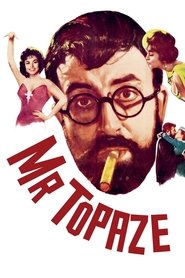 Mr Topaze is an unassuming school...
Mr Topaze is an unassuming school...Mr. Topaze 1961
Mr. Topaze is an unassuming school teacher in an unassuming small French town, who is honest to a fault. He is fired when he refuses to give a passing grade to a bad student, the grandson of a wealthy baroness. Castel Benac, a government official who runs a crooked financial business on the side, is persuaded by his mistress, Suzy, a musical comedy actress, to hire Mr. Topaze as the front man for his business. Gradually, Topaze becomes a rapacious financier who sacrifices his honesty for success and, in a final stroke of business bravado, fires Benac and acquires Suzy in the deal. An old friend and colleague, Tamise questions him and tells Topaze that what he now says and practices indicates there are no more honest men.
 Albert Topaze sincere schoolteacher addicted to...
Albert Topaze sincere schoolteacher addicted to...Topaze 1951
Albert Topaze, sincere schoolteacher addicted to "rote" morality, works at a private school run by supremely money-grubbing M. Muche, whose daughter, also a teacher, makes cynical use of the knowledge that Topaze loves her. Alas, Topaze's naive honesty brings him unjust dismissal...and makes him fair game for the "aunt" of his private pupil, really the mistress of crooked politician Regis, who needs an honest-seeming "front man." Can artful Suzy Courtois keep Topaze on the string? With steadily escalating disillusion comes moral crisis...
 In this little Provencal village a...
In this little Provencal village a...The Baker's Wife 1938
In this little Provencal village, a new baker, Aimable, settles down. His wife Aurelie is beautiful and much younger than he. She departs with a shepherd the night after Aimable produces his first breads. Aimable is so afflicted that he can not work anymore. Therefore, the villagers, who initially laughed at his cuckoldry, take the matter very seriously (they want the bread) and organize a plan to find Aurelie and to bring her back to the bakery.
 In the 30s a small village...
In the 30s a small village...Harvest 1937
In the 30s, a small village in the Provence is losing its inhabitants because young people prefer to go to the city to find easy jobs and escape from being farmers living in relative poverty. Only a few old people and the poacher Panturle remain. Panturle dreams of bringing the village back to life, finding a wife, founding a family and work as a farmer. One day, the village is visited by a traveling knife-grinder, Urbain Gedemus and a young woman, Arsule. Gedemus treats Arsule like a slave, but Arsule accept this because she has nowhere to go and -we guess- her 'work' with Gedemus is the last thing that saves her from being a prostitute. When she meets Panturle and knows about his dreams, she escapes from Gedemus and decides to stay with him. Together, they start a new life, made of hard farming work but mostly of happiness to have each other - fulfilling the earlier dreams of Panturle. Can anything break the happiness of their new life?
 In the 1920s the Provence is...
In the 1920s the Provence is...Toni 1935
In the 1920s, the Provence is a magnet for immigrants seeking work in the quarries or in the agriculture. Many mingle with locals and settle down permanently - like Toni, an Italian who has moved in with Marie, a Frenchwoman. Even a well-ordered existence is not immune from boredom, friendship, love, or enmity, and Toni gets entangled in a web of increasingly passionate relationships. For there is his best pal Fernand, but also Albert, his overbearing foreman; there is Sebastian, a steady Spanish peasant, but also Gabi, his young rogue relative; there is Marie, but there is also Josefa.
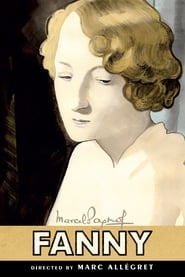 Picking up moments after the end...
Picking up moments after the end...Fanny 1932
Picking up moments after the end of Marius, this film follows Fanny’s grief after Marius’s departure—and her realization that she’s pregnant. Panisse continues courting her and embraces the baby’s impending arrival as a gift, so long as its paternity remains a secret. Fanny and Panisse wed, but after her baby’s birth, Marius returns unexpectedly and demands what he believes is still his.
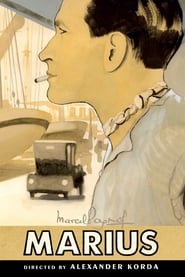 Csar runs a bar along Marseilles...
Csar runs a bar along Marseilles...Marius 1931
César runs a bar along Marseilles' port, assisted by his 23 year old son, Marius. Colorful characters abound: M. Panisse, an aging widower and prosperous sail maker; Honorine, a fishmonger with a sidewalk stall near the bar; her daughter, Fanny, who helps her sell cockles just outside the bar; and various old salts. Friends since childhood, Fanny and Marius love each other, but Marius has a secret wanderlust: every ship's whistle stirs a longing for foreign lands. When M. Panisse seeks Fanny's hand in marriage and when a departing clipper needs a deckhand, Marius and Fanny must decide who and what they love most. César, with his generous, wise spirit, tries to guide his son.
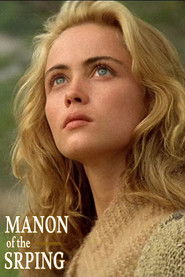 In this the sequel to Jean...
In this the sequel to Jean... Marcel Pagnols adaptation of his own...
Marcel Pagnols adaptation of his own...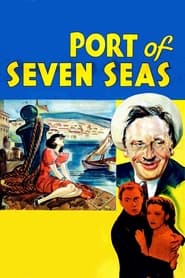 In the French port of Marseille...
In the French port of Marseille...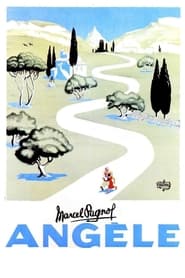 Angle is a 1934 French drama film...
Angle is a 1934 French drama film...